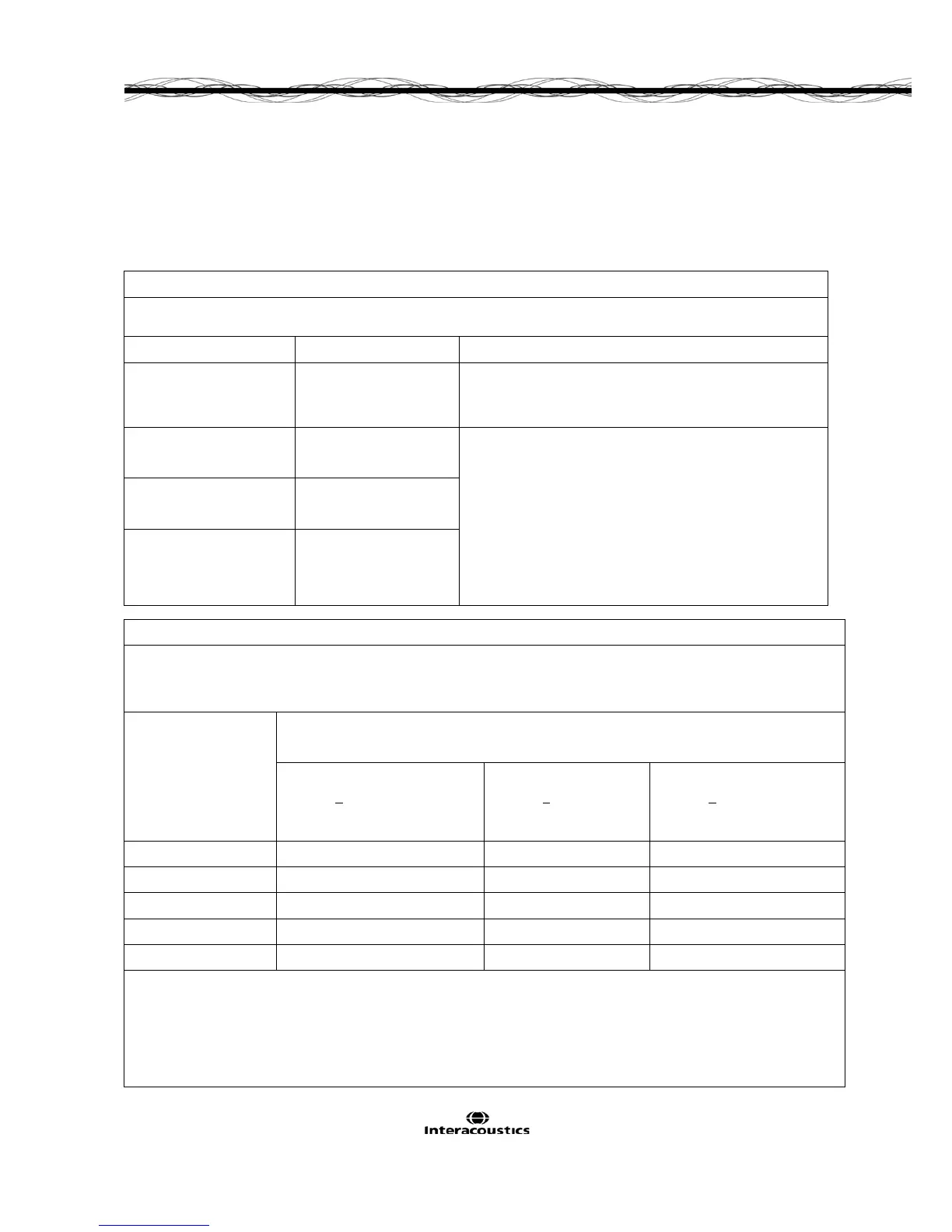AT235 Instructions for Use - EN Page 54
5.2 Electromagnetic Compatibility (EMC)
Portable and mobile RF communications equipment can affect the AT235 . Install and operate the AT235 according to the EMC
information presented in this chapter.
The AT235 has been tested for EMC emissions and immunity as a standalone AT235 . Do not use the AT235 adjacent to or stacked
with other electronic equipment. If adjacent or stacked use is necessary, the user should verify normal operation in the configuration.
The use of accessories, transducers and cables other than those specified, with the exception of servicing parts sold by Interacoustics
as replacement parts for internal components, may result in increased EMISSIONS or decreased IMMUNITY of the device.
Anyone connecting additional equipment is responsible for making sure the system complies with the IEC 60601-1-2 standard.
Guidance and manufacturer’s declaration - electromagnetic emissions
The AT235 is intended for use in the electromagnetic environment specified below. The customer or the user of the AT235
should assure that it is used in such an environment.
Electromagnetic environment - guidance
RF emissions
CISPR 11
Group 1 The AT235 uses RF energy only for its internal function.
Therefore, its RF emissions are very low and are not likely to cause
any interference in nearby electronic equipment.
Class B The AT235 is suitable for use in all commercial, industrial,
business, and residential environments.
Harmonic emissions
Voltage fluctuations /
flicker emissions
Recommended separation distances between portable and mobile RF communications equipment and the AT235 .
The AT235 is intended for use in an electromagnetic environment in which radiated RF disturbances are controlled. The customer or
the user of the AT235 can help prevent electromagnetic interferences by maintaining a minimum distance between portable and mobile
RF communications equipment (transmitters) and the AT235 as recommended below, according to the maximum output power of the
communications equipment.
Rated Maximum output
power of transmitter
[W]
Separation distance according to frequency of transmitter
150 kHz to 80 MHz
d = 1.17
80 MHz to 800 MHz
d = 1.17
800 MHz to 2.5 GHz
d = 2.23
For transmitters rated at a maximum output power not listed above, the recommended separation distance d in meters (m) can be
estimated using the equation applicable to the frequency of the transmitter, where P is the maximum output power rating of the
transmitter in watts (W) according to the transmitter manufacturer.
Note 1 At 80 MHz and 800 MHZ, the higher frequency range applies.
Note 2 These guidelines may not apply to all situations. Electromagnetic propagation is affected by absorption and reflection from
structures, objects and people.

